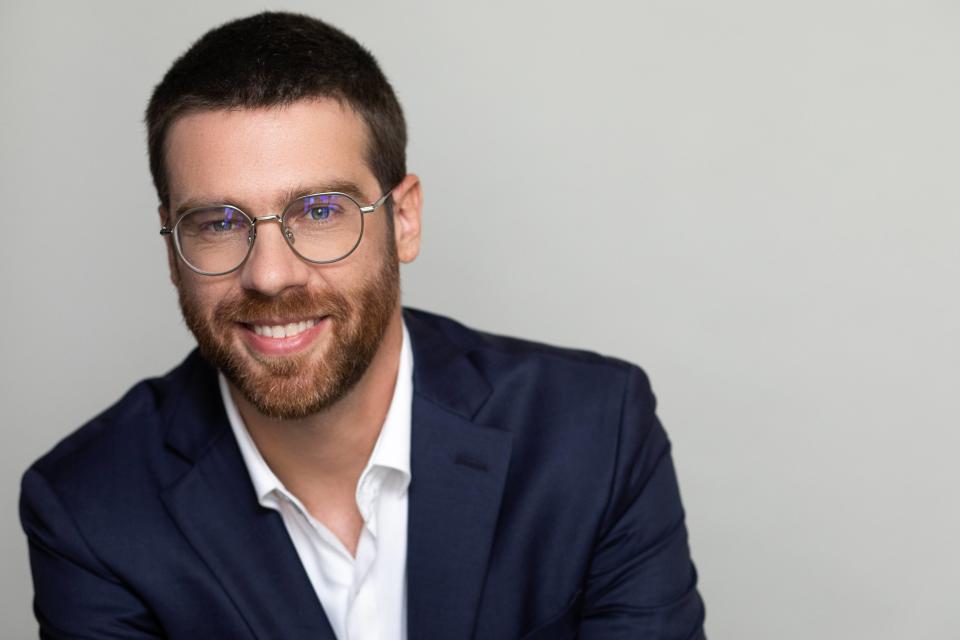Thélios CEO Alessandro Zanardo Maps Out Growth Avenues

MILAN — Thélios is living “in a magic moment,” contended Alessandro Zanardo, chief executive officer of the eyewear company.
In his first interview since joining Thélios in February, Zanardo underscored its transformation and “change of scale” that took place last year, as the portfolio grew through the arrival of major brands including Dior, Fendi and Givenchy, “maturing from its initial phase as a start-up.”
More from WWD
Zanardo brings to Thélios his experience in the sector, as he is a former Luxottica Group executive. Between 2010 and 2021, he held a series of positions there ranging from business development director in Russia and country manager in South Africa, to general manager in Brazil.
International and commercial expansion of Thélios is a key target for Zanardo, he said. While being present in key markets, Thélios is stepping up business in the U.S., as he touted exponential growth rates in that region, as well as in the Middle East and Asia Pacific, including China.
“We are consolidating and enhancing our industrial production in Longarone. We continue to grow, and last year Thélios hired 300 employees, and already this year we have hired an additional 250 workers,” said Zanardo, noting the need to strengthen the organization given the significant growth of the portfolio of brands. “We are investing in know-how to be at the forefront of the business, building on the initial investments made that set the foundations for the future, which seems very promising at this moment.”
Last year, the company had 800 employees. The state-of-the-art plant in Longarone, a one-hour drive from Venice, was inaugurated in 2018, and production spans more than 194,400 square feet.
Thélios is controlled by luxury conglomerate LVMH Moët Hennessy Louis Vuitton, which took full control of the company last December after agreeing to purchase Marcolin’s 49 percent stake in the business for an undisclosed sum. Separately, Marcolin bought back the 10 percent stake LVMH owned in that Italian company.
The step allowed LVMH to strengthen its presence in the eyewear industry, leveraging on Thélios’ expertise. Thélios produces for Dior, Fendi, Celine, Loewe, Stella McCartney, Kenzo, Fred, Berluti and Rimowa. Givenchy was the latest LVMH brand to join the Thélios portfolio, beginning in January.
Thélios began operating in 2018, a joint venture between LVMH, which at the time had a 51 percent stake, with Marcolin owning the remainder.
The year 2021 saw the arrival of Dior in January, and Fendi in July, bowing for fall 2021.
The general consensus is that Thélios will gradually produce eyewear collections for most, if not all, the brands under the LVMH umbrella. Thélios also partly produces for Louis Vuitton, whose eyewear is sold only through its own boutiques.
“Each brand is free to choose [its eyewear producer] and Thélios has proven it is able to attract important luxury brands. The arrival of Dior was a fundamental step, as was that of Fendi and Givenchy,” continued Zanardo. “We need to stabilize after a year of such growth and we can continue in this direction with solid bases, in operations and quality of distribution.”
Zanardo was speaking from the Fendi headquarters at Palazzo della Civiltà in Rome, where an eyewear convention and presentation of the fall 2022 collections was being held, telegraphing “a symbolic and increased integration” between Thélios and the brands.
“There is a strong partnership with the maisons,” which leads to “seeing and understanding the market in a synergic way. One team becomes two but there is a single vision on how to manage this category and this is a very strong value. This differentiates Thélios and it is perceivable on the product, creativity and distribution.”
Thélios has seen growth in both the ophthalmic and sun categories and Zanardo said the company wants to be increasingly relevant in the former, too. Fendi for example is launching its first men’s ophthalmic line.
The young executive is also focusing on raising the bar of the company’s distribution network. “We have the responsibility of what happens with the branded products until the last moment, when they reach the consumer. The quality of distribution is a mantra for us and we continue to select partners in line with our brands, whatever the channel. Each brand is different and we need to respect their respective needs,” he concluded.

Ben Dauchez courtesy of Thélios
Sign up for WWD's Newsletter. For the latest news, follow us on Twitter, Facebook, and Instagram.

